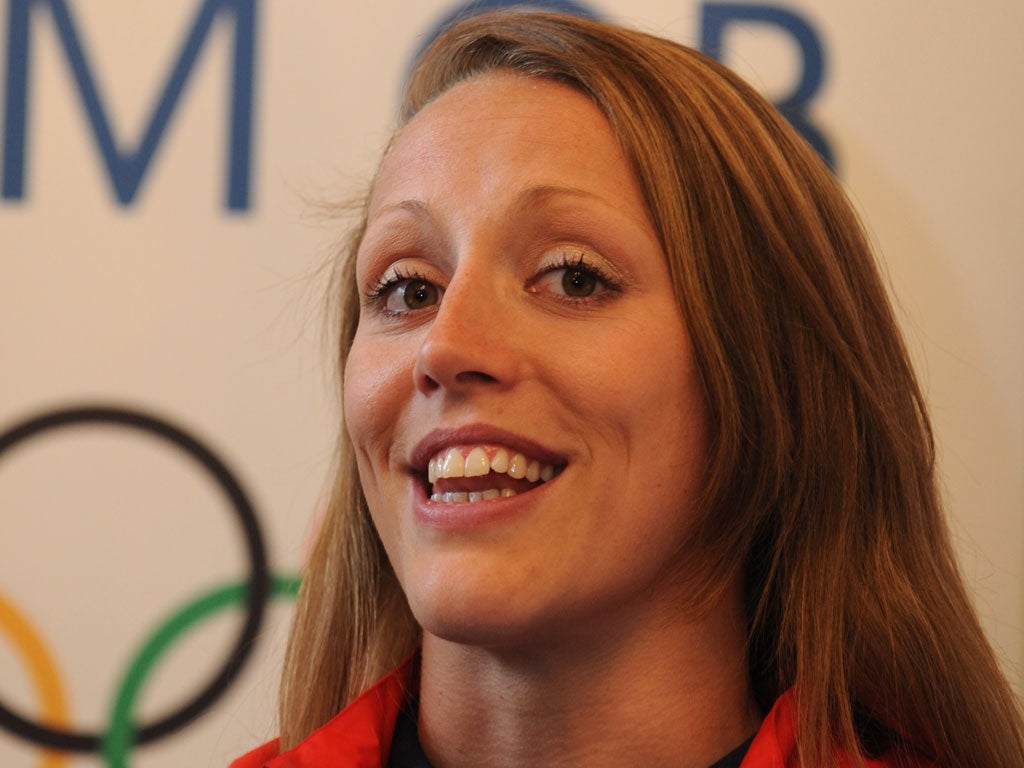GB women hoping to make it four in a row in pentathlon

Your support helps us to tell the story
From reproductive rights to climate change to Big Tech, The Independent is on the ground when the story is developing. Whether it's investigating the financials of Elon Musk's pro-Trump PAC or producing our latest documentary, 'The A Word', which shines a light on the American women fighting for reproductive rights, we know how important it is to parse out the facts from the messaging.
At such a critical moment in US history, we need reporters on the ground. Your donation allows us to keep sending journalists to speak to both sides of the story.
The Independent is trusted by Americans across the entire political spectrum. And unlike many other quality news outlets, we choose not to lock Americans out of our reporting and analysis with paywalls. We believe quality journalism should be available to everyone, paid for by those who can afford it.
Your support makes all the difference.How better for Britain to end this Olympic Games than with one of their strongest events? The final gold medal to be handed out, before the closing ceremony this evening, will be in the women's modern pentathlon.
This curious collection of disciplines does not have much of a media profile in Britain. There has always been a feeling that it is the property of the rest of Europe. Created by the father of the Olympics Baron de Coubertin, started at the 1908 Olympic Games in Stockholm, and dominated by Hungary, Sweden and Russia, this combination of fencing, swimming, horse-riding, running and shooting has not traditionally been a British strength.
Until, that is, the women's version was introduced at the Sydney Games of 2000, when Britain's Stephanie Cook won gold and Kate Allenby bronze. Britain took medals in the next two competitions too, with Georgina Harland taking bronze in Athens and Heather Fell silver in Beijing. Britain is the only country to have won medals in all three women's competitions.
They have a good chance of making it four in a row today. Mhairi Spence, from Inverness, is the reigning world champion in both individual and team events and the world No 2. After all the successes of British athletes over the last two weeks, there is a good chance of a glorious climax at some point this evening.
Cook, 12 years on from her famous gold medal in this event, believes that the crowd can make all the difference. "There's nothing like a home Olympics and that makes the difference here," she says. "We've seen through the Games so far how the support from the crowd has really lifted all of the British competitors. It is a question of feeding off that energy of the crowd and actually using it in a positive way to get that extra bit out of your body and your mind, to be able to perform at your absolute best."
When Cook won her gold she did so on the other side of the world. Spence and Samantha Murray now have the chance to do so at home, and Cook knows how much of a benefit that will be. "I was very lucky to have the opportunity to compete in Sydney," she adds. "That is regarded as one of the best Games of recent times. It was a fantastic competition. I'm sure it's every athlete's dream to have the chance of competing at a home Games. It wasn't the right timing for me but for the athletes competing here it's just the most fantastic opportunity."
With such an impressive body of work behind British female pentathletes, Cook is confident that their legacy can continue in London today. "Our track record from 2000, when women were first included in the Olympics, has proven that the British women pentathletes are really very strong," she says. "The fact that Heather Fell, the silver medallist from Beijing, did not actually qualify herself a spot for London is testament to how strong our British squad is. There's a lot of pressure on them. I hope they can continue that medal run into London."
If there is one complication, it is a change to the format this year. The shooting and running have been brought together into one final combined event, meaning that competitors will finish with a task they are fairly unfamiliar with.
"I think it's really important for the British girls to get a good fence under their belts and then have that to build on through the rest of the competition," advises Cook. "The pressure going into the final combined event, especially with the shooting, can really get to the athletes so it does leave it very open."
Join our commenting forum
Join thought-provoking conversations, follow other Independent readers and see their replies
Comments